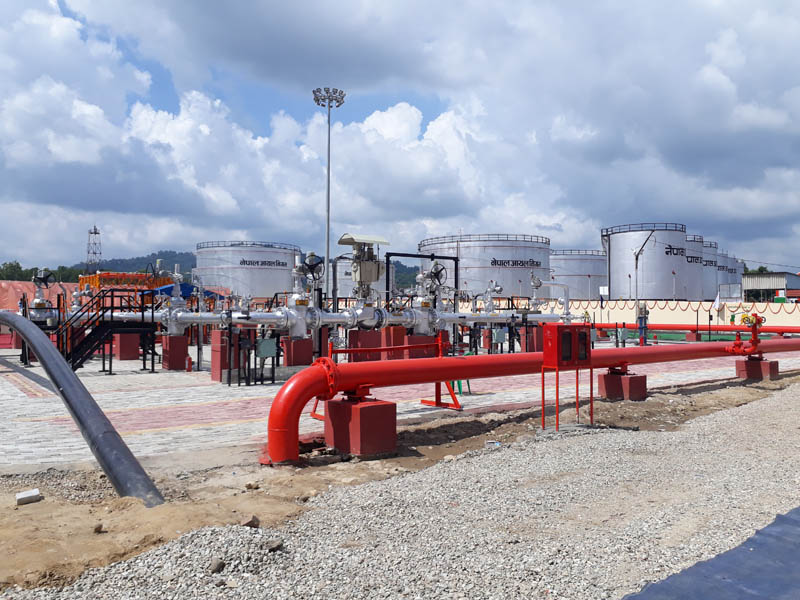Nepal, India to study feasibility of liquefied natural gas pipeline project
Kathmandu, January 30
Nepal and India have agreed to study the feasibility of liquefied natural gas pipeline stretching from Gorakhpur in India to Rupandehi in Nepal.
The government had proposed Indian authorities to build the Gorakhpur-Rupandehi natural gas pipeline during a recent Nepal-India joint working group (JWG) meeting held in New Delhi, where the Indian authorities had agreed to jointly study the feasibility of the project, informed Dhurba Ghimire, joint secretary at the Ministry of Industry, Commerce and Supplies (MoICS).
Citing that the demand for natural gas has been increasing in the recent years, Nepal had urged Indian government to construct a natural gas pipeline connecting the two countries, which will ensure effective supply of liquefied natural gas as per the domestic demand.
“Indian authorities have taken our request to construct the cross-border natural gas pipeline positively. Technical officials of both countries will soon begin the feasibility study of the planned Gorakhpur-Rupandehi natural gas pipeline project,” said Ghimire.
As per him, Indian government has sought the commercial viability of the planned natural gas project and the details of the demand for liquefied natural gas (LNG) in Nepal. Moreover, he informed that Nepal Oil Corporation (NOC) will submit necessary details to the Indian Oil Corporation (IOC) soon.
“Following this, the two sides will fix the modality of LNG pipeline project and its cost,” added Ghimire.
MoICS officials are optimistic that Indian government will help Nepal build the planned natural gas pipeline project once Nepal assures Indian authorities that the country is a potential market for LNG. Among others, natural gas is instrumental to manufacturing chemical fertilisers in the country.
Built under the assistance from India, South Asia’s first cross-border oil project — Motihari-Amlekhgunj Pipeline Project — has already started commercial operation from September.
India has also agreed to extend the Motihari-Amlekhgunj oil pipeline to Chitwan after a study carried out by the IOC showed that it is feasible. Expansion of the oil pipeline project to Chitwan is expected to heavily reduce fuel transportation cost of NOC. The Motihari- Amlekhgunj pipeline project is expected to reduce fuel transport cost of NOC by more than Rs two billion annually.
Meanwhile, the Indian government is also positive towards constructing a cross-border liquefied petroleum gas (LPG) pipeline and bilateral discussions at different levels are being carried out to materialise the LPG pipeline project, as per Ghimire.






